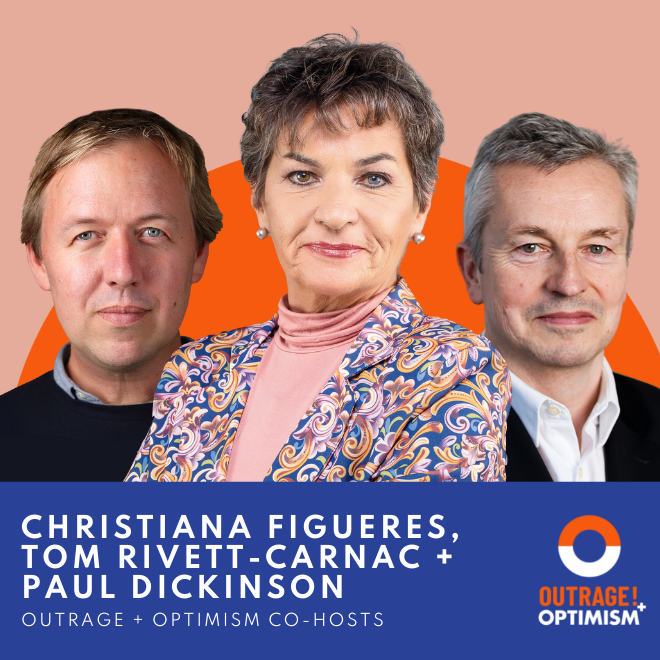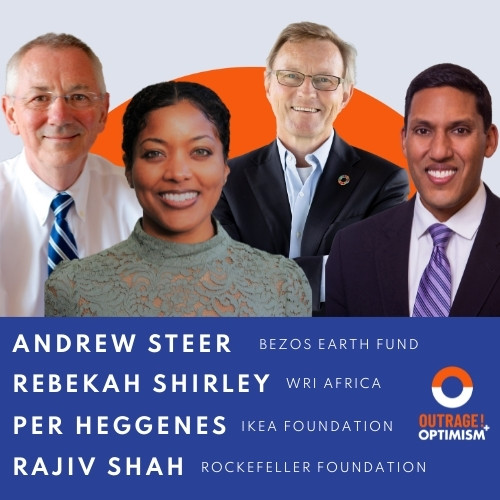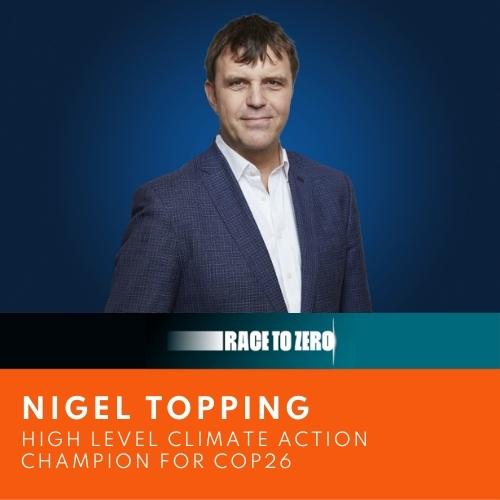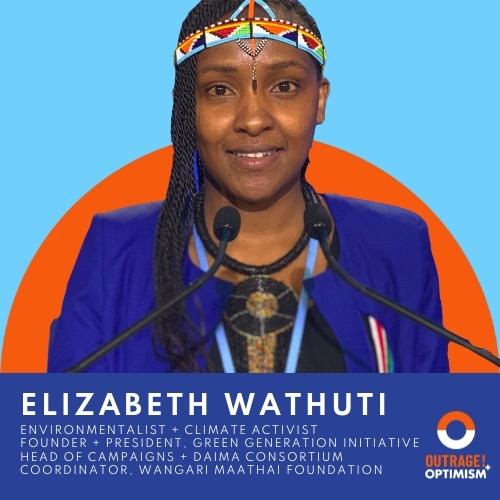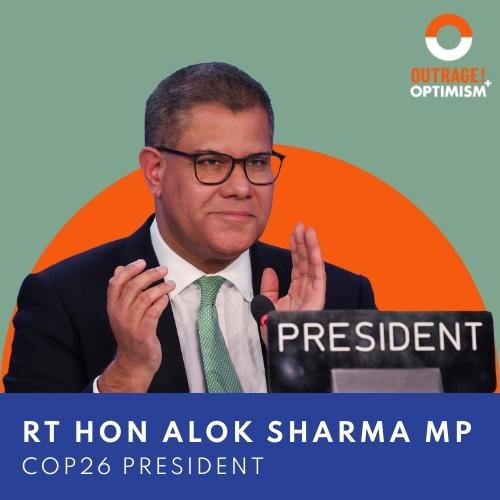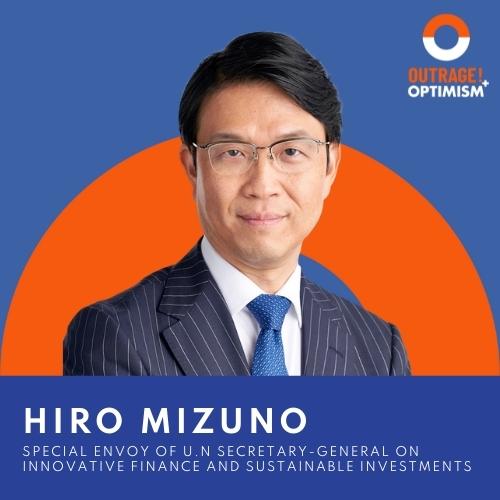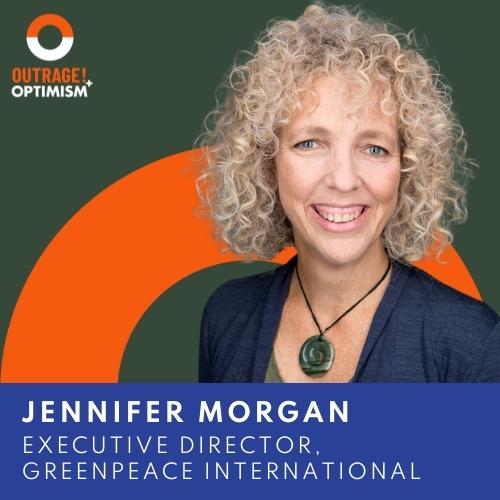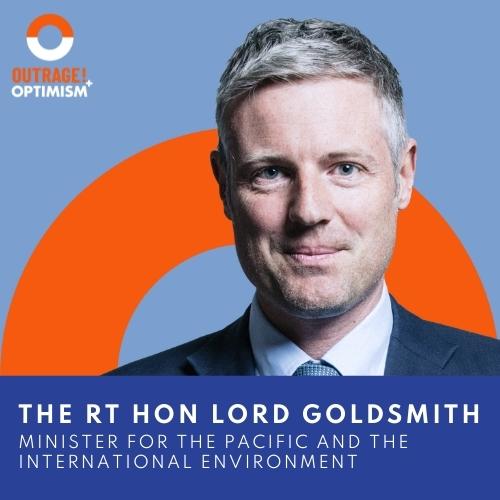124: We Need to Talk about China and Climate With Peggy Liu + Kevin Rudd
This week we talk with Peggy Liu, a leading catalyst of a greener China and Former Prime Minister of Australia and President of the Asia Society, Kevin Rudd, who offers deep insight into China’s climate goals and trajectory of travel.
About this episode
China.
On one hand, the country is the world’s largest source of carbon emissions, an economic and political powerhouse resting on a thick cloud of hydrocarbon pollution, contrary to the goals of the Paris Agreement. On the other hand, President Xi Jinping has set the stage for China to emerge as an environmental leader, with the highest reforestation rate in the world; it makes and buys more electric cars than any other country by far; and is the world’s top renewable energy investor for the eighth consecutive year, including manufacturing 80% of solar cells globally.
It is clear that China has the power to determine whether we can limit global temperature rise to 1.5 degrees celsius. As we head into the COP26 international climate discussions, all eyes will be on the indomitable diplomatic skills of China and America’s special envoys for climate, Xie Xanhau and John Kerry, who brought about significant pact between the world’s two top polluters that significantly influenced the success of the Paris Agreement.
This week we talk with Peggy Liu, a leading catalyst of a greener China and Former Prime Minister of Australia and President of the Asia Society, Kevin Rudd, who offers deep insight into China’s climate goals and trajectory of travel, gleaned over 35 years of working with the Chinese Government.
Enjoy the show!
Watch
Full Transcript
Transcript generated by AI. While we aim for accuracy, errors may still occur. Please refer to the episode’s audio for the definitive version
Tom: [00:00:12] Hello and welcome to Outrage and Optimism, I'm Tom Rivett-Carnac. Today, a special episode on China on the eve of COP26. Thanks for being here. So hi, everybody, it's Tom here. Christiana, Paul and I are on the train to Scotland today, we will see many of you there, no doubt, and we will be producing episodes from the COP itself over the coming two weeks. But on the eve of the negotiations, we wanted to bring you a deep dive and a conversation about China. China, of course, is the world's fastest-growing economy and largest emitter of greenhouse gases. China has tremendous potential to either help the global community achieve the aim of limiting climate change to 1.5 degrees or to push it quickly out of our collective reach. China's growth as a major polluter and leader in green technology and energy is a tale of two halves. The Climate Action Tracker recently found that Xi Jinping's pledge to reach carbon neutrality before 2060 in itself lowered global warming potentials by 0.2 to 0.3 degrees, the single largest change that any individual policy has recorded. This is the power that China's domestic and international policies can wield. However, as we note already, it's not enough and we need to go further. China is often portrayed in Western media as defensive, closed, focused only on economic gain at any cost.
Load MoreTom: [00:01:35] While jostling for power on the world stage, the truth is that China is not always easily understood by Western audiences. So today, as world leaders gather for the start of the G20 in Rome and COP26 kicks off on Sunday. Xi Jinping's conspicuous absence is dampening hopes for any updates from China on its 2060 goal, which if not amended. While an improvement on where we were before, are still not sufficient and will threaten our chances of limiting climate change to 1.5 degrees. So today we do a deep dive into the context and current situation of China and how they are approaching this issue. It's a dual position that they hold as both polluter and environmental leader, and we have two incredibly knowledgeable and well-respected guests on our podcast. China's 'Green Goddess', Chair of JUCCCE Board, Member of Drawdown and Governor of the Hillary Institute, Peggy Liu, and former Australian Prime Minister and President of the Asian Society Policy Institute, Kevin Rudd. Both guests have an intimate understanding of Chinese culture and diplomacy and share their thoughts on how best to engage China to help accelerate our collective pace towards meeting the goals of the Paris Agreement.
Paul: [00:02:52] Peggy, thank you so much for joining us here on Outrage and Optimism, and such a pleasure to reconnect with you after, I think, about five years ago, we met up at the wonderful Findhorn Foundation and have you been reading a book called Synchronicity by Joseph Jaworski?
Peggy Liu: [00:03:09] I have not, but it sounds like it's right up my alley. And of course, Findhorn is -
Paul: [00:03:16] You haven't?
Peggy Liu: [00:03:17] I quoted it, but I haven't actually read it fully. So my dirty little secret is because I know so many people who write books, I just talk to them directly versus read the entire book.
Paul: [00:03:30] Makes a lot of things very efficient. I simply was going to mention that I've just read the book, and a lot of it touches on Findhorn, so I hope we're going to get a chance to to talk about that. But look, Peggy, I know you do a million things and our listeners will be very lucky to get some insights from you. I just like to start off with something you said in an interview a while ago, which I thought was absolutely fascinating to really kind of help people get a better understanding of the great nation of China. You said it's more like a multinational corporation. Can you talk a little bit about that? But to help us kind of reframe, you know, the other?
Peggy Liu: [00:04:05] Well, one of my friends in the Ministry of Finance, who I met through the World Economic Forum, he actually told me during a lunch. He said, Look, you know, the West thinks China is a communist country, but they're really thinking about maybe a Russian model of communism. In actuality, the way China runs is a multinational corporation. So it has a CEO, a chairman. It has a board, the State Council. It has branch managers in every province. And each of those branch managers have advisory councils and international advisory councils. We have a business plan with KPIs, key performance indices. That's the five year plan.
Paul: [00:04:48] Can we get one of those for Boris Johnson in my country? I would really feel much more comfortable. Sorry, I didn't mean to interrupt.
Peggy Liu: [00:04:55] Just commission one. I'll help you out with that, Boris. Right.
Paul: [00:04:58] Thank you.
Peggy Liu: [00:04:59] But the five year plan centrally then gets broken down into responsibilities for every single province, for every single city, for every single district, for every single leader, and we get promoted. So the government, unbeknownst to a lot of people around the world, the government has to take mandatory government training. So they have education, they have an HR department, essentially, and they run mandatory government training. And each one of those people get promoted just like in a company. So in many ways, China is not an authoritarian country. It's really like an IBM with a strong, charismatic CEO, a Cisco, a GE. It's very similar to that model.
Paul: [00:05:51] Ok, well, I mean, that's that's a great framing. And I know China a little bit, so I'm kind of understanding what you're saying. So then can we get this super practical for a minute? I mean, there's lots of kind of analysis about China, but actually how much understanding is there? That's why I'm really looking for from you. Can you give to our many listeners around the world? So a kind of practical understanding of of how to work in China, how to work with China or Chinese companies or investors? What would you say is that is the kind of insight that maybe people are not going to have picked up from from the conventional media and they might have come across?
Peggy Liu: [00:06:28] Well, it's interesting. I was just having breakfast with somebody from the UK Government and somebody who runs a large fund here in the UK, and I was talking to them about how to take UK innovative technologies and work with China, Chinese companies, to invest in that, to produce it at scale, to pilot it at scale. And I said, you know, the number one misunderstanding about people coming into China with really cool technology is that the technology is what really matters. That is a misunderstanding. The most important thing in China is government relations. It's quenching its long term, sometimes generational relationships. So when you hire somebody to be your head of government relations in China, you're buying an entire family relationship over many, many generations, possibly, and hometowns, and a lot of tea drinking, a lot of baijiu drinking, moonshine. And these government relations people are the ones that will know whether or not something is going to be approved without having to go through the official approval process. It's that that relationship that is going to be able to steer you into the fast permitting process. It's going to lead you to a mayor that's going to be more amenable to asking you a UK company or New Zealand company or a U.S. company to come into their local city and give you acres of land, hectares of land to pilot your technologies, give you tax free breaks, give you fast permitting. So all of these special ways to get you off the ground support you that you don't see in other countries. And so it's those relationships that allowed me in 2007 to bring in this new concept at the time called Smart Grid. And by 2009, yeah, do you know what Smart Grid is? Well, China did not know.
Paul: [00:08:37] Internet slang, the internet on top of the energy infrastructure of the world, right?
Peggy Liu: [00:08:41] That's right. But China did not even use the term 'Smart Grid'. It didn't have any concept of what the Smart Grid was in 2007. So I worked with companies mainly in the U.S. at the time to come up with a drawing of the future, the dream of the future where China was all Smart Grid enabled. And lo and behold, in 2009, so two and a half years later, the city of Yangzhou, which is one of the three cities that I did Smart Grid bilateral forums. The mayor, the deputy mayor, the head of the economic development zone took 12 acres. I think that's about two hundred mu and in nine months, literally nine months from conception to cutting the ribbon. They created the first ever Smart Grid demo hub, which included office buildings, dorms, the sort of museum trade show area. And this is the hometown of Jiang Zemin, one of the former presidents of China. And so the way that I was able to get to that city was through somebody who was the son of a former mayor of that city, and we just knew the incentives. And you know how to talk in the language of the local government officials, how to get them excited that this was a brand new industry that would create jobs. It would create glory for the mayors of the city at the central level and get them promoted one day. And this then ended up being the first of many pilot cities, whole cities that were piloting how to create Smart Grid across their city. And the China State Grid, which is one of our two grid companies, they committed 7.2 billion U.S. dollars to implement Smart Grid by 2020. This was in 2009. So this is how China works is on the backs of relationships.
Paul: [00:10:44] And have you also said that China is, you know – unusually because countries are normally so arrogant – a learning country? Is that right?
Peggy Liu: [00:10:51] Well, I think anybody who goes to school with Chinese kids, they know that parents really care about education. This is the most important thing is actually to pass the college entrance exam. It's called gaokao in China and your entire life up to that college entrance exam is basically dedicated to passing that exam and getting into the best college possible so that you can get a good job and possibly raise the living standards of your entire extended family through that one single test. So you can imagine how important education is to Chinese families. And I told you earlier that China is one of the only two countries in the world that I know of that has mandatory government training 12 days minimum each year. Whether you're a Boris Johnson, whether or not you're a Bloomberg in charge of New York City, you are expected to take mandatory government training so that you can learn about new policies, new practices, new technologies and learn how to harmonise across the country. Whether you're in charge of a large city today or a small rural village over the course of your career, you're expected to rotate and know how to take care of the people in every single one of those situations. And so China is, I think, a land full of opportunity because it is not afraid to fail, not afraid to experiment at city scale. It's not afraid to take best practices from all over the world and localise it to the local Chinese characteristics. It doesn't matter if it wasn't invented in China, it just cares about being a better China the next day so that every single day is a better, a better lifestyle, better living standard, an opportunity for average citizens to have a thriving life. So every single day since I moved there in 2004, it's been a better lifestyle for me on the ground living in Shanghai now.
Paul: [00:13:06] I mean, the world needs to decarbonise, as we all know. And you've said you think China can be a clean tech laboratory for the world. I mean, what other examples beyond smart cities, Smart Grids, have you seen where that's happening?
Peggy Liu: [00:13:20] Well, in my personal experience, when I launched JUCCCE, my organisation Joint US-China Collaboration on Clean Energy, I launched that in April of 2007 and I was asked, I was sort of encouraged, nudged by the U.S. Government to bring in Smart Grid into China. I told you that story. And we met with the then Vice Minister of the Ministry of Housing and Urban Rural Development and he encouraged me to start the first ever classes to teach mayors how to build eco cities. And so over the course of eight years, I taught over a thousand mayors and central government officials on the technologies that were new at the time. Clean energy for cities, distributed heating and cooling at a city level, municipal waste and water, low carbon transport, eco heritage, tourism, eco, liveable cities, so on and so forth. And every single one of those technologies, those practices were experimented on at a city level, whether it's LED street lighting or self-driving, shareable electric cars or electric buses. Every single technology that China has found that is commercially viable, they are experimenting at city level, not only in one city, but tens of cities. And so at some point one of these cities is going to find out how to make sure that this scales. And then that best practice is then shared to all the other cities in the world or money.
Peggy Liu: [00:14:54] Large sums of money are put behind scaling it countrywide. So that's why I say, although China is coming from a very low point of polluting what now the world's biggest polluter, if you judge China just at that one single point, then it's going to be hard to judge Western countries well, the ones that started the industrial revolution, but if you judge China on a trajectory and the amount of intent and investment and willpower and experimentation that it's put towards going green, then China is the country that is going green at the fastest scale, at the fastest speed, what I call quantum scale and quantum speed. Nobody else can do it at this scale because China is led largely by engineers. They think in processes, it's led by companies that know how to build high speed rails, the largest network in the world in five years, the largest subway systems in the world, the largest bridges, the largest highways. China knows how to build infrastructure. So I think because of that, we China can help the world go green. But we need to find a geopolitically palatable way for us to collaborate and for all citizens around the world to be stakeholders, shareholders, beneficiaries of this transition.
Paul: [00:16:30] Well, I'm going to ask you about that in a minute from a slightly different angle, but I just want to mention something to our listeners, which is the link is linked to the point you made. You pointed out that China is the world's largest polluter. It is also the world's largest exporter, and a very large volume of the emissions attributed to China are indeed emissions of other countries in the world who are doing their manufacturing in China. So that's just a point that needs to be, you know, on everyone's radar. It's not like this necessarily so much inefficiency in China. I'm going to combat this, this this question of of systems from a slightly different perspective, which is. You know, you have talked about spiritual traditions previously or aspects of spirit. We met, as discussed, at –
Peggy Liu: [00:17:16] At Findhorn!
Paul: [00:17:16] An eco village.
Peggy Liu: [00:17:19] A magical place.
Paul: [00:17:21] A magical place. Well, yeah, can you speak a little bit about what you think is the role of of that magic in our global societies and and in our challenge with climate change and the broader challenges we face as humans?
Peggy Liu: [00:17:36] Well, so let me just give you some context of my background. On one hand, the right brain of me, you know, I was trained as an electrical engineer at MIT. I did a program at Harvard Kennedy School on policy public policy. I went to McKinsey. You can see me talking about my McKinsey background in many places. I was a VC, an early stage VC. I started in Silicon Valley as one of the first e-commerce CEOs ever, so I have a very engineering-numbers-process-oriented training. But what I've learned since 2007 over the experience of changing China seven times from doing these large scale, you know, Smart Grid, eco cities, changing the lighting code, introducing the national slogan China Dream, et cetera, et cetera. What I've learned looking backwards is that the reason why these changes were able to be successful at societal scale in three years, each one of them took three years to reach a tipping point where the entire population of China could never go back. It can only go forward. It can only progress. What I learned is is that none of the numbers matter. Numbers numb. The how to get there doesn't matter. The technology is secondary as well. The most important thing is actually to tap into the old ancient wisdom of, for example, the Dao: harmony with nature.
Peggy Liu: [00:19:18] So the world is really about, can we harmonise the different energy waves, the different efforts? We don't want uniformity. We don't want likeness sameness. We just want harmony harmonisation instead of unification. We want alignment versus misalignment. Right. And so this is a very different way to look at how to create movements. And I call this tornado leadership because essentially the most important thing is to understand the energy of a future that you want to create. So in Smart Grid, it's a future of China where everything was connected and everything was efficient and everything was smart. And this this resonance of a future is actually a mathematically calculated, relatable residents, just like playing in an orchestra. There's the resonance and there's the harmony, right? If there's one instrument that's out of tune, then you have dissonance in the orchestra. Sounds terrible. And so what's really important is to understand the energetics of building a movement. And this is about spinning the tornado, right? And so spinning the tornado means learning how to do micro tasks. So learning how to do asks that people can say yes too easily. It's about learning how to magnetise people like a particle into the tornado with the joy the marvel of going into Willy Wonka's, going into Willy Wonka's chocolate factory for the first time, the golden ticket.
Peggy Liu: [00:21:04] That feeling of euphoria and wonder is the type of emotion that draws people in, to wanting to help you subconsciously to wanting to help you asleep or awake. They're thinking about How do I make this reality real? Just like Avatar, right? The protagonist thought the avatar world was more real than his actual world. And so being able to draw people in to magnetise people in into a very real world in great detail, so much detail that I know what people are eating, I know how people are dressing, I know people how people are commuting. I know how people are making love, right? Hopefully not making war. And these details then are basically things that people can agree on without politics, without first talking about how to get there or how much money it's going to take. So the tornado energy? She is really about drawing people in to this with emotion and with imagination and through the vortex, it's a little bit like Dorothy, how she went from Kansas to Oz in a blink of an eye. And so what I have developed over time is the knowledge of how to lead meetings, how to lead companies, how to create strategic visions without even talking about the technologies, the money, the risks, the 'how-to's that comes later. That comes later and it comes magically.
Peggy Liu: [00:22:41] It's the synchronicity of all these people who are thinking and feeling and acting in order to create that vision, to make that vision control. Sophie Lambin, actually, of Kite Insights, she actually.
Paul: [00:22:56] I know Sophie, yep.
Peggy Liu: [00:22:56] You know her. So she calls this heads, hearts and hands. Each one of those are energetic forces that help make the tornado bigger and bigger help increase the angular momentum of this tornado. And so what I've learned is is that if you know how to tap into the the way the Dow the flow, then you can actually have a whole society help create, for example, the China dream and the whole society in China of 1.4-5 billion people. Be excited about this subliminal images of green grass blue sky happy children. Right? And you don't have to do this through centralised control. You don't have to have three scenarios to do, right? You don't have to have white papers. All you have to do is hold the eye of the storm, the centre of gravity in a particular energetic frequency of that future reality. You have to create from the future and not from the stuckness of the now and not from the baggage of the past. Just leapfrog. So that's tornado leadership.
Paul: [00:24:11] It makes perfect sense, a kind of implicit order that is associated, I think, with sustaining and enhancing life flourishing. You articulate it very beautifully. So our time is moving on, and I am unfortunately forced, but also delighted to ask you a question that we ask all of our guests. This podcast is called Outrage and Optimism, and we feel that you must have outrage to drive the will to change because our world is in real peril. But we also think optimism is an important force in organising the world. When you position yourself on that continuum between outrage and optimism, where are you, Peggy?
Peggy Liu: [00:24:53] I am absolutely on the optimistic side, and that is because I've seen China change in my own organisation alone. Seven times across the country, three years, it only took three years each for each change. And so I've seen it happen. I know it can happen for other countries. So I'm an optimist. I also am very against outrage because on a spiritual, you know, from a spiritual perspective, if you put energy against something, then you define yourself in the what you're against, right? You hold yourself at a very low resonance and actually higher resonances of love and safety and euphoria and joy. That's actually what draws people in to create with you, not the outrage. And also, the outrage is really creating out of violence and violence I find on the outside world is really just a reflection of violence within. And so if we want inner peace and happiness in ourselves, in with our families, with our communities, with their neighbourhoods, right, we we really want to create out of harmony and wholeness and flow. We want our past selves, our current selves, our future selves, all to be whole and one hundred percent us. We don't want to be in an US that is just a reflection of influence of others. Right. So I don't want what I'm mad at to define who I am. I just want me to shine as me. And so I'm very against any type of movement that starts by defining the problem. I'm very against anything that is protesting against something. I'm very much a believer that you jump to defining the future that you want you create with your future self and you take that resonance. And that will do its magic because 95 percent of all of us. Or actually just subconsciously acting towards having more love in our lives, being our truer selves. And so act from love. Act from optimism, not outrage, not violence.
Paul: [00:27:21] Well, we won't change the podcast name, but I do agree. You know, you've done a fantastic job of articulating the Chinese dream, and I'm forever quoting the musical Rodgers and Hammerstein. You have to have a dream or you cannot have a dream come true.
Peggy Liu: [00:27:34] That's right, exactly. And what's really exciting about China right now is that it's continuing to make huge policy announcements that are very exciting and will make a huge impact on whether or not the world is going to succeed in getting to net zero. And that is that it announced net zero emissions by 2060. It's going to, I think, peak emissions before the Paris Agreement commitments of 2030. It's going to probably reach that in 2025. And I know that Christiana, you talked to me in Amsterdam about really wanting China to stop investing in coal plants abroad, and it announced that just days ago, that's really exciting, and it's already looking internally at stopping the development of already approved coal plants. It's look, it's really looking at that very seriously. And James Thornton, who lives in London but is from America, I think, did such a great TEDx talk in Edinburgh about how he, as an environmental lawyer, helped go to China at the request of the equivalent of the Supreme Court? Justice there, at their request, helped establish a new environmental law and train over a thousand prosecutors in China from scratch on how to prosecute local governments on environmental crimes. And more than that, he said in 2020, over 80,000 cases were prosecuted in China at a 98 percent success rate. So he was very surprised that China invited an international expert to help them prosecute themselves on environmental crimes. So this is an example of how China is thinking very long term, very holistically and doing the right thing, and that it's on a trajectory to going green and see it and succeeding to go net zero by 2016. And that makes me super, super optimistic for the future.
Paul: [00:29:45] Well, indeed, if the workshop of the world is making that happen, probably Chinese industry will actually be critical in providing the materials to help the rest of the world decarbonise. But we we did talk to James on the show, and that's an amazing story. Peggy, thank you so much for taking time to talk to us today on Outrage and Optimism. Really appreciate your work, your leadership, your vision and a real joy to soak up some of the energy of China changing for the better at super-speed.
Peggy Liu: [00:30:12] Thank you so much, Paul, and I hope to see you in Findhorn again soon. And I hope Christiana, boy, I hope she really does her magic again at COP in Glasgow. You know, I just want to say for everybody: please be optimistic. China is going green. I'm not a Communist Party member. I'm not being paid by the Ministry of Propaganda. This is stuff that I've seen on the ground as an American born Chinese. I've been able to make change happen, and China's government is really going as fast as possible and leading the way. So thank you so much for listening. I'll see you around in the metaverse.
Paul: [00:30:54] Peggy, that's a fascinating way of signing off. Wonderful interview. Really appreciate it. Bye for now. Bye.
Christiana: [00:31:05] Kevin, thank you so much for taking time to join us on Outrage and Optimism literally two seconds before the COP starts, everyone's attention has been moving to the COP, and especially to the geopolitics around the COP, and where every country, big and small are actually positioning themselves in front of the leaders summit that begins on the first Monday of the COP. We are delighted, Kevin, that you have joined us in a willingness to share with us out of the deep knowledge that you have acquired over so many years about China and the the first question that I would like to tease out with you is two realities that we are seeing. On the one hand, we see China in preparation for what could be a very long, cold and hard winter. We see China. Going out to the market to buy as much coal and gas as possible in partly due or partly, and therefore partly responsible for these crazy prices that we're seeing on the market because the demand is definitely outstripping the supply. On the other hand, we see political statements. For example, the statement that we had several months ago from President Xi Jinping about China no longer financing coal abroad, we see internal policies that are having an effect of closing down old coal plants and in fact, even diminishing cold use. So what do we have here, Kevin? Do we have a short term followed by a long term strategy? Is that what we're seeing or do we actually have a country of two tails?
Kevin Rudd: [00:33:09] Christiana, I think we have a combination of both. Let me take the tale of two cities first. The Chinese system also has politics like most of the countries of the world, and there is the politics of, let's call it, the energy lobby, which is principally and historically driven by hydrocarbons. Then you have the politics of those who have been long associated with renewable energy and domestic and international climate change action. And historically, these tensions have been resolved in an entity called the National Development and Reform Commission, the NDRC, which brings together, let's call it, the two warring states of the Chinese system. Strategically, I've got to say over time, I have seen the climate change constituency increasingly prevailing in this debate. If I was to take the measure of the last five to 10 years, by the time we had got to the year 2020 and 2021, Xi Jinping's major statements about carbon neutrality by 2060 and the one you've just referred to in terms of coal fired power stations investment abroad, these represented significant, as it were, wins for the climate change constituency within China, led in large part by our friend and colleague Xie Zhenhua, himself, formerly in the most senior levels of the NDRC himself.
Kevin Rudd: [00:34:57] So that's the general trend that I see. I think what we're seeing with this particular winter, however, is a series of, shall we say, temporary problems in the Chinese domestic energy market, which have added difficulty of predicting where energy demand would actually be within China, given the dislocations of the COVID induced economic crisis and other external economic factors that there has been a series of tensions within the Chinese energy market, which have produced the sorts of phenomenon you've just described. I do not see this as a long term trend. I see it as one which will be with us, at least for the next six to 12 months. But if I'm looking carefully at the internal content of the 14th Five-Year Plan, which governs China for the next five years, starting from effectively March this year, it is taking China into a more renewable, less carbonised future, not at the pace which you and I would want, but frankly, in terms of strategic pivot points better than we've seen with the previous five year plan. And frankly, any time since I first started dealing with the Chinese on climate in the celebrated conference in Copenhagen in 2009.
Paul: [00:36:23] So, a kind of slightly theoretical question, but actually making its way into the forthcoming COP and the many thousands of people listening to this interview who are trying to think about different ways to interact with the process and achieve the outcome we all want. Super fascinating to hear you talk about within the Chinese system challenges to government from different constituencies played out through the NDRC. That's super interesting. But you know, I know that you're a former democratically elected leader of a country. So we're clearly talking about different systems here. But I think one of the strongest contrasts is, for example, the concentration of media ownership particularly prevailing in Australia, in the US to some extent, where there's lobbying by industry directly to the public through concentration of media and people identify, particularly the the Murdoch press. What is that doing to the reputation of democracy and how do you see the two systems playing out? And how can people engage with those systems given they've got these these different challenges?
Kevin Rudd: [00:37:38] Well, you're right, obviously, to point out the fact that the role of public opinion within China and within the United States is vastly different for the Chinese Communist Party, though you'll be interested to know that the party regularly engages in opinion poll research about itself and the view of the of the people towards the party on any range of policy issues. It's part of their continuing as it were mass consultation processes. Of course, all ultimately aimed at keeping the Communist Party in power. But the reason I make that point is that the Chinese Communist Party is not immune from Chinese domestic opinion. Right? The second point is, nor is the Chinese Communist Party immune from international public opinion. China aspires to become a global great power by the middle of the century, according to Xi Jinping's China Dream the great rejuvenation of the Chinese nation by pushing by 2049 on the centenary of the establishment of the People's Republic. And they understand that in order to do that, China in the eyes of the world has to become not just a great physical power full of military power, economic power and technological power in the rest, but also to have a recognised and accepted mission in the world, which contributes to global public goods in some way. Therefore, international public opinion directed towards China's posture on climate change is also relevant. Therefore, we shouldn't simply abandon the field on either that or the extent to which international public opinion filters in through the firewall into Chinese domestic social media. It does, and it continues to do so despite the best efforts of the Chinese censors and propaganda machinery.
Christiana: [00:39:37] Kevin, we are, as we say, ad portas to COP26. You are the President of the Asian society. We have been fortunate enough to hear some of your thinking on both China and Australia, but Asia is a very, very large and diverse region from the broader Asian perspective. Are you hugely concerned about COP26 or are you actually even optimistic about potential results?
Kevin Rudd: [00:40:14] I am now genuinely half and half. I was more pessimistic before partly my 'half and half' view, a glass half full and a glass half empty, is driven by what we've just described in terms of China and China, the United States, but also because we've seen movements now towards carbon neutrality by 2050, both by Japan and the ROK. We have not seen that action yet on the part of Indonesia, nor have we seen it on the part of India. However, the fact that you have the three North East Asians now moving in the direction of carbon neutrality is considerably advanced. As you know from your own experience in Paris five or six years ago, Christiana, where we were with those major economies at that time. I think the challenge, however, is to galvanise pan-regional political consensus on this question. As you know, putting the Europeans together on this is now taken as a given. But there was a lot of work in getting European consensus on this at the get go for those of us who've got historical memory. Indeed, the beginning of that process in Asia. So that's one of the reasons why my own thinktank, the Asia Society Policy Institute, has just about to launch an initiative around Asian carbon neutrality in order to build pan-regional political consensus around this question. And we'll be in discussions with the Japanese, the Koreans, the Chinese, the South East Asians and particularly the Indonesians, and probably most problematically, the Indians about driving in this direction. I intend to engage as many former heads of government and as many former foreign ministers and climate ministers as possible to begin to lay out the political consensus underpinnings to get us towards that point over the next several years. But it'll be a process, let me tell you. And I'm sure there'll be resistance afoot, but that's never stood in your way in the past, Christiana.
Christiana: [00:42:28] Or in yours, Kevin, or in yours.
Kevin Rudd: [00:42:32] Nor in mine. When you get rolled over the top by a very large semi-trailer, you just pick yourself up, dust yourself off and then start walking up the road again.
Christiana: [00:42:42] And keep on going onwards, always onwards. Kevin Rudd, thank you so much. Thank you for sharing all of these insights with us. Thank you for joining us here on Outrage and Optimism. I think our listeners will be truly, truly privileged to hear these insights just a few seconds before the COP. Thank you so much for joining us on Outrage and Optimism, and we hope to be talking to you after the COP again.
Kevin Rudd: [00:43:12] But you also to your crew for being such activist and intelligent activists in the process of driving the international community towards consensus on the great economic, environmental and moral challenge of our generation. I was attacked for calling it a moral challenge, by the way, ten years ago. I still am in Australia. I make no apology for it. If you believe in intergenerational justice, it's an inherently moral and ethical question. And that's what climate is.
Christiana: [00:43:45] So true, so deeply true. Indeed, indeed. Thank you so much.
Tom: [00:44:01] So while it seems unlikely that Xi Jinping will attend the G20 and COP26 in person, we should not necessarily read it as a signal of non-engagement from China. As we've heard, China aspires to become a great global power and is not immune to domestic and international public opinion. It has the capacity and means to become a world leader in green tech and sustainability, and all evidence shows that this is its long term plan. But the global community must keep up the pressure to encourage China in its transition from coal to renewable energies. Kevin Rudd advocates that an intelligent, balanced critique approach to China that acknowledges how far China has come in its green transition, while continuing to stress that it's not fast enough is key. Engaging China in its ambition to move faster, especially if it wants to be fully recognised as a global leader rather than attacking it. Both guests agree, will yield more positive and faster results. China has positioned itself firmly as a major player over the next decade and beyond. How the rest of the world chooses to negotiate and collaborate with China and how China responds will be key to determining whether we are able to keep ourselves onto the path of 1.5 degrees, or whether we are compromising the future of all of us. We hope that you have enjoyed. This conversation and that you've learned something about China. We certainly have, and we look forward to seeing how the next couple of weeks play out, that will, of course, be so critical for all of us. Thanks for joining us. We'll see you in Glasgow.
Dan: [00:45:30] Thank you for listening to this episode of Outrage and Optimism. My name is Dan. I'm one of the production team here that bring you only the freshest in climate audio. Now, if you're a regular listener to the podcast, I know what you're thinking: oh my word, where is Clay? Well, don't worry, you're only stuck with me for a week or so because Clay is taking a few days of very well-earned leave. I know, I'm jealous, too. Massive thank you to our guests this week, Peggy Liu and Kevin Rudd. Really grateful to them for taking time out of their busy schedule and chatting with us this week. The production team that brought you this episode, Sharon Johnson, executive producer, Daniel Curtis, me, producer and editor, and Sarah Thomas, researcher and producer. Special thanks also to Thom Woodroofe from the Asia Society for his help with this episode, and of course, to our very own Clay Carnill for just, I don't know, going on holiday and leaving us to it. I don't know why I'm thanking him. Ignore me. As you heard from Tom in the episode, just then the team are in Glasgow ready for COP. We're going to be pulling together to bring you as much content as we can cram down the airwaves, all of the interviews and analysis and commentary that you've come to expect and love from Outrage and Optimism. It's been a real pleasure chatting with you in these credits, not something I usually get to do. Next week, you'll have the more dulcet American tones of Clay returning to your headphones, but for now, thanks for listening and see you next week.
Your hosts

Christiana Figueres
 Follow Christiana Figueres on Instagram
Follow Christiana Figueres on Instagram

Tom Rivett-Carnac
 Follow Tom Rivett-Carnac on Instagram
Follow Tom Rivett-Carnac on Instagram

Paul Dickinson
Guests
.jpg)


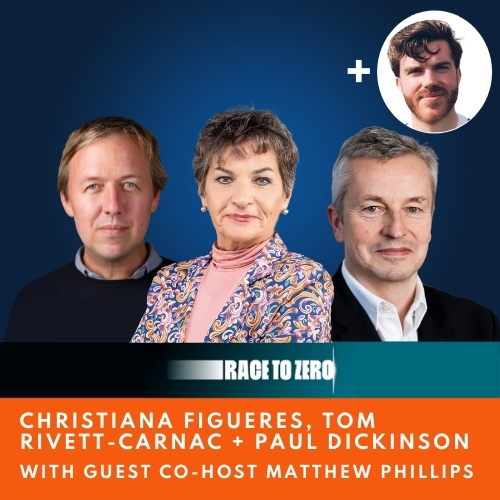
.jpg)
